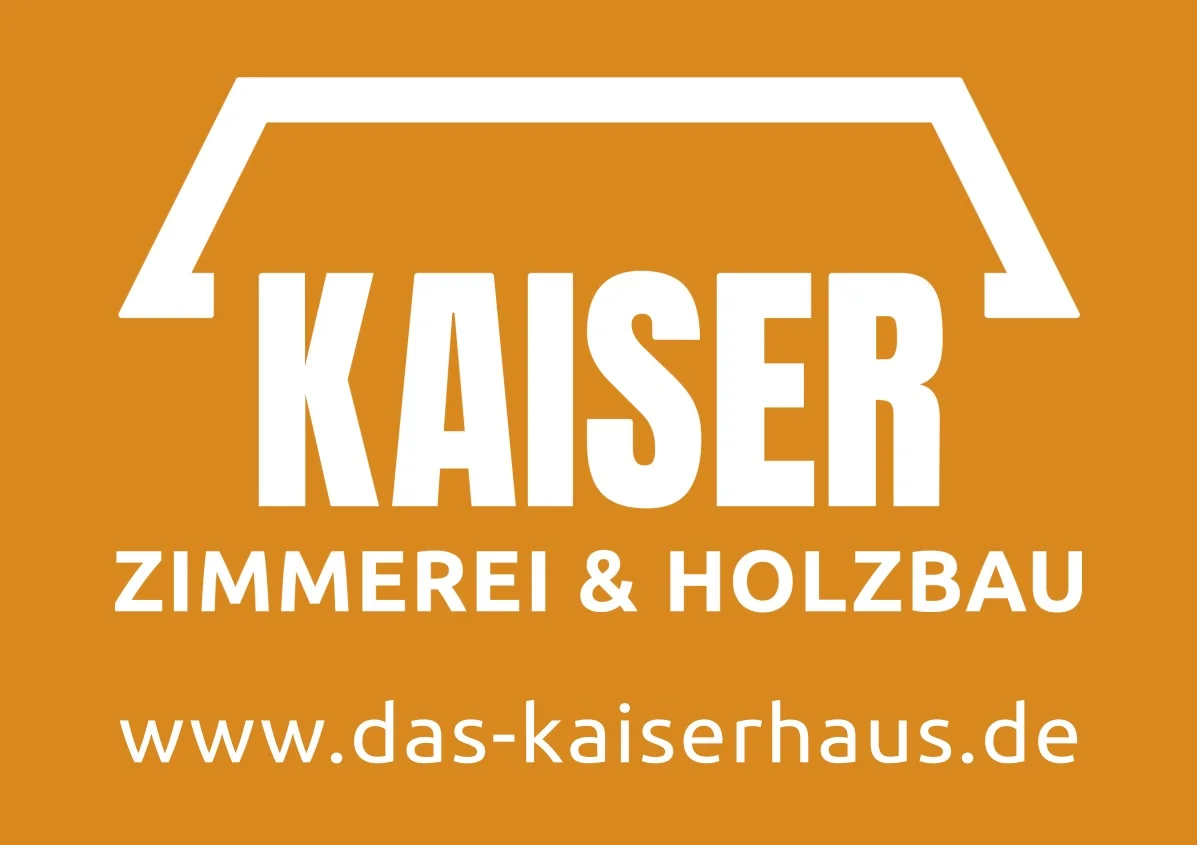Shape the future - become a cooperation partner in the dual study programme
As a cooperation partner in the dual study programme, you combine theory and practice in the best possible way. You offer students the opportunity to apply their academic knowledge directly in the workplace – while securing motivated young professionals who bring fresh ideas and strong commitment to your company.
On this website, you will find everything you need to know about the dual study programme: its benefits for your company, and a step-by-step guide on how to become a cooperation partner. Together with you, we aim to create practice-oriented study conditions and provide a solid foundation for tomorrow’s skilled workforce.
Start now - and invest in the qualified talent of today and tomorrow.
What is a dual study programme?
This study format allows students to either complete a vocational apprenticeship alongside their degree (training-integrated) or to work full-time in an existing role within the industry while studying (work-integrated). Future professionals and leaders are introduced to their responsibilities within the company during their studies and benefit from an ongoing transfer of knowledge between academic learning and hands-on practice. By combining theory with real-world experience, students gain valuable industry exposure early on and are well-prepared to take on responsible roles immediately after graduation.
The dual study programme in Wood Engineering (B.Eng.) offers two valuable pathways:
- The training-integrated variant, which combines university studies with a vocational apprenticeship in the company — ideal for developing new talent.
- The work-integrated variant, designed as a Further education and qualification pathway for existing employees, allowing them to study alongside their professional duties.
The dual study programme in wood engineering
The dual Bachelor's degree programme in → Wood Engineering at HNEE is offered as an eight-semester degree programme in both variants.
In the first four semesters, or two years, students complete the practical phase – foundational work in the company. In the training-integrated variant, with a standard three-year apprenticeship, the second and third years of training take place during this period.
The first year of the apprenticeship can be completed at the company prior to the start of the degree programme.
This is followed by a three-semester attendance phase (1.5 years), during which students study full-time on campus in Eberswalde. During lecture-free periods, students return to the company. Maintaining close contact with the company, even during the on-campus phase, is essential to the success of the programme. Students can, for example, work on real company projects and challenges as part of their coursework and project assignments during their studies.
In the eighth and final semester, students once again work full-time at the company. After completing the practical specialisation phase, they write their Bachelor’s thesis and conclude their studies with a thesis defence.
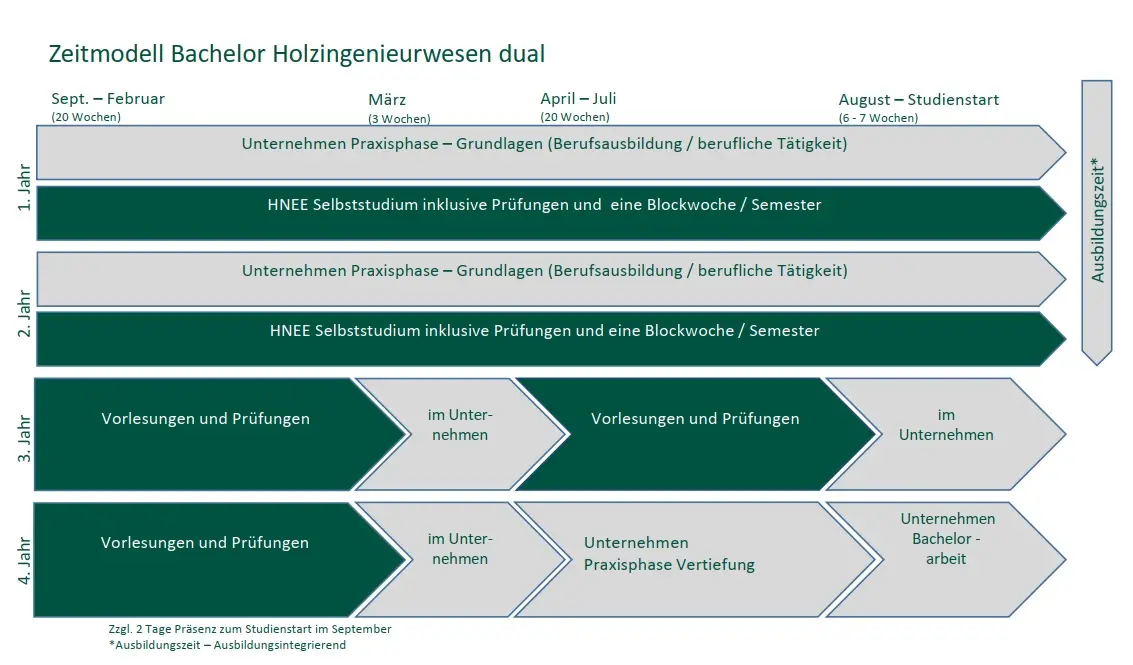
If the apprenticeship period differs from the standard three years, we will find a solution. Please don’t hesitate to contact us!
The Bachelor’s degree in Wood Engineering can be combined with the following apprenticeships:
joiner/cabinetmaker, carpenter, wood mechanic, industrial mechanic, wood processing mechanic, technical product designer, and other related professions, subject to individual assessment.
The degree programme offers two specialisations: Wood Technology and Building Construction.
Programme content and contracts
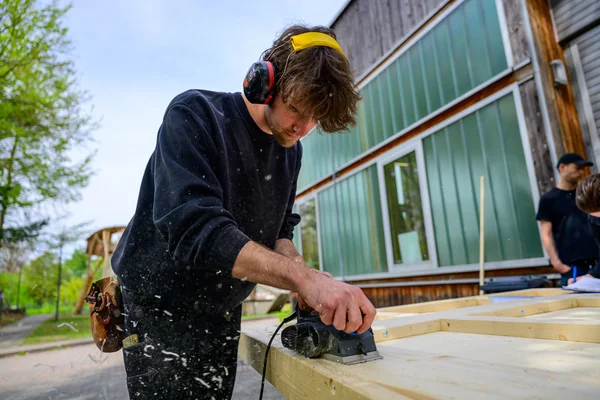
Practical work during construction
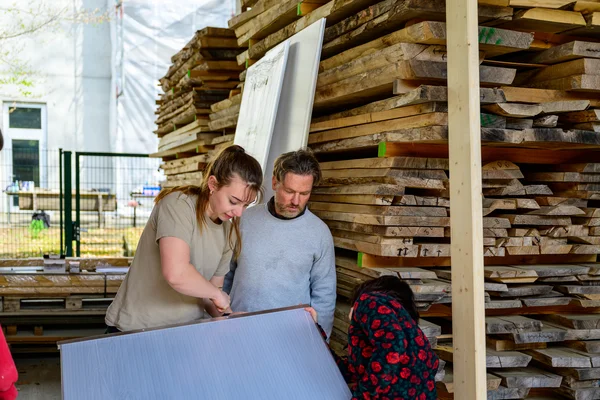
Prof Hermann Weizenegger and students prepare multi-skin sheets for installation
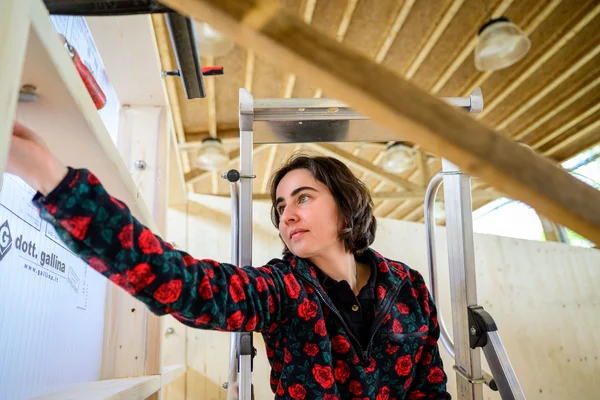
Installation of the multi-skin sheets
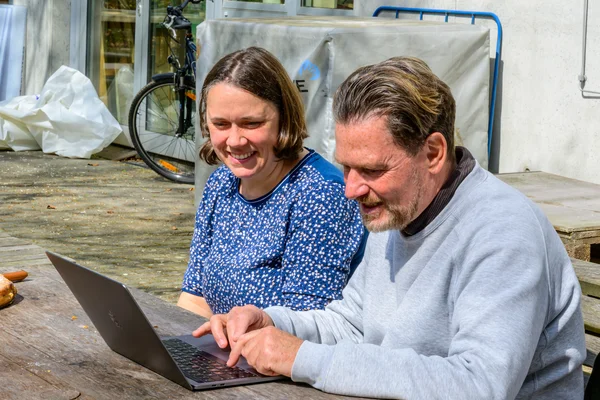
Prof Katharina Messerer (HNEE) and Prof Hermann Weizenegger (FHP), who are supporting the project
Your advantages as a cooperation partner
- Strong company loyalty: Increases the likelihood of students staying on after completing their apprenticeship
- No onboarding period: Graduates can take on tasks in the company immediately after graduation
- Knowledge transfer between industry and academia: Bring up-to-date expertise into your company through the degree programme
- Securing young talent: Train future professionals in-house through company-based apprenticeships
- Staff retention: Strengthen your workforce by qualifying existing employees through a work-integrated degree programme
- Lower drop-out rates: The combination of theory and practice keeps students motivated, even during challenging phases
Step by step to partnership
Carry out a needs analysis
Identify which specialists your company will require in the long term.
Do you need qualified young talent, or would you prefer to develop your existing employees? In either case, a dual study programme could be the ideal solution – practical, future-focused, and tailored to your needs.
Contact the university
Arrange a non-binding consultation
In a personal consultation, we will work with you to determine which study model best suits your needs and answer any questions you may have.
Develop a concept for integration
Integrate dual students into your work processes in a meaningful way
The university defines the theoretical and practical phases, but you can also involve students in company-specific tasks during the theoretical phases — so both sides benefit.
Creating framework conditions in the company
Prepare everything necessary for a successful collaboration
This includes appointing a contact person, defining clear areas of responsibility, setting the schedule for the theoretical and practical phases, and, if needed, establishing an internal mentoring or support system.
Advertise a dual study place
Attract suitable applicants
Create a clear and effective job advertisement based on the → selection criteria of the degree programme and your own requirements – and start the application process in good time.
Conclude contracts and start studying
Establish the formal foundations and welcome your future dual students
For a dual study programme, you need a cooperation agreement with HNEE that governs the thematic and formal collaboration. You will conclude a training contract (for the training-integrated degree programme) or an employment contract (for the work-integrated degree programme) with suitable candidates. Specific aspects of the degree programme are set out in the training contract between the company and the candidate.
All three contracts must be submitted to the university along with the candidate’s application.
The dual study programme at HNEE is a real asset when it comes to developing young professionals. It allows us to inspire students early on and actively involve them in our projects in a hands-on, meaningful way. Our dual students bring fresh perspectives, quickly find their footing within our workflows, and soon become valued members of the team.
At a time when skilled workers are increasingly hard to find, the dual study programme plays a vital role in nurturing future talent – with the goal of growing together over the long term.
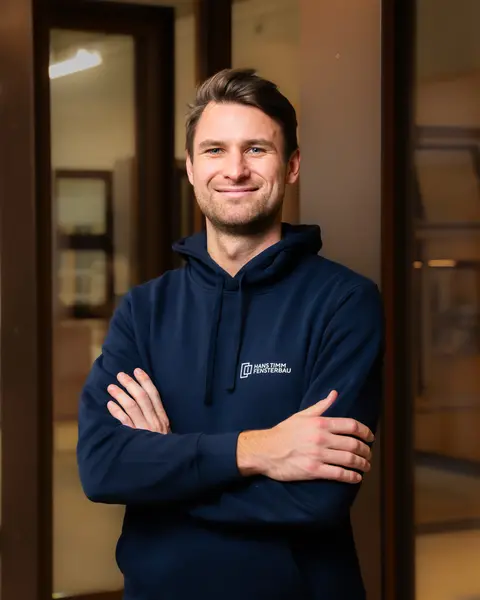
Benedikt Swiatek
Management | Hans Timm Fensterbau GmbH & Co. KG
Frequently asked questions
What is the difference between the "training-integrated" and "work-integrated" forms?
In the training-integrated dual study programme, students learn a profession at the same time as their studies—that is, they complete an apprenticeship.
In the work-integrated dual study programme, students have already completed an apprenticeship and work in this profession within the company during the practical phases.
How can a company become a cooperation partner?
If you would like to qualify employees (part-time) or offer training within your company (training-integrated) alongside a degree programme, you can provide a dual study programme in cooperation with HNEE. This is based on a cooperation agreement between the company and the university.
As a practice partner, do I need to have a connection to the timber industry?
A connection to the timber industry is required. Special cases can be considered.
Can practice partners advertise dual study programmes via the HNEE website?
Yes, we are happy to link your logo to your website or your dedicated job advertisement page.
You can also post job vacancies yourself on the Career Service→ job portal.
What does the financing look like?
Students receive a salary or training allowance from the company, which ideally covers their living expenses.
There are no tuition fees, but students are required to pay a semester fee. This covers the cost of the semester ticket, student representation, and the student union. This fee can be covered by the company.
When and how are classes scheduled during the first two years?
Classes are typically held online every two weeks in the evenings, at times agreed in advance. In addition, there are in-person sessions at the university during designated block weeks. These usually take place in the first week of December and in a different week in May each year. The official → semester dates are available online.
How much time should I set aside for study each week in the first two years?
You should expect to spend around 12 hours per week on coursework and scheduled activities.
How much time is available for practical work in the company from the third year onwards?
The lecture-free periods — around three weeks in spring and six weeks in summer — are typically spent working in the company. In addition, there is one block week in December and another in May. If the company and university are located near each other, students may also be able to work in the company after lectures.
Practical project work can also be carried out within the company or based on real-world challenges provided by the company.
Can the degree programme begin after completing the first year of an apprenticeship or a preparatory year?
Yes, in this case, you would start the degree programme in parallel with the second year of your apprenticeship.
Does the degree programme have to start at the same time as the apprenticeship?
No, the degree programme usually starts in the second year of the apprenticeship. An exception applies to two-year apprenticeships: in this case, the degree programme and the apprenticeship begin at the same time.
In the case of three-year apprenticeships, it is possible to shorten the training period by skipping the first year. The degree programme would then begin alongside the second year of the apprenticeship.
Alternatively, you can complete the first year of the apprenticeship and then begin the degree programme in parallel with the second year.
Interested in working together on a dual study programme?
We support you in finding the right study model and accompany you every step of the way – from the initial idea to the start of your cooperation with us.
Let us advise you without obligation!




